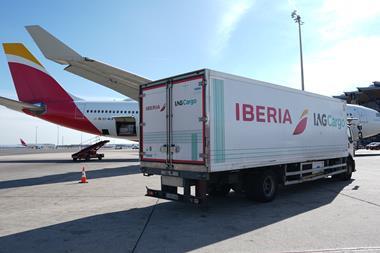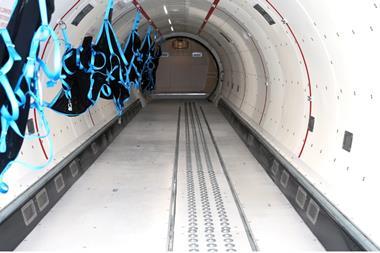COMPANIES like to boast about what they are doing to combat climate change, but does it influence the way they design their supply chains? And what does that mean for air cargo? Will it inevitably always be seen as the bad boy for carbon emissions, or is there anything it can do to improve its image?
A good person to answer these questions is Andrea Schoen, senior manager of carbon controlling and consulting at global logistics company DB Schenker. Her response is that yes, companies are taking the issue seriously, but air cargo may not have such a poor story to tell as it thinks.
Certainly DB Schenker is receiving more and more enquiries from customers about its environmental programme. “It’s gaining huge momentum,” Schoen reveals. Pressure comes from EU regulations, from consumers, but also from capital markets which increasingly see sustainability – in which carbon emissions are a component – as a measure of a company’s financial robustness.
She points to the Dow Jones Sustainability Index and also to the Carbon Disclosure Project (CDP), a voluntary scheme put in place by the world’s stock exchanges. “The CDP shows that a company knows what its emissions are and can track them. Bloomberg includes a company’s carbon accounting in their security rating.”
Concern over energy security feeds into this debate. Investors in companies are worried not just about high energy prices, but also about access to oil and gas supplies in the future. And though CDP and other measures are currently voluntary, companies are anticipating future legislation.
Does that mean there is pressure to reduce airfreight use? Not necessarily, says Schoen. “We do have some customers who want to reduce airfreight usage, but carbon emissions are not the only factor: more important may be to cut costs or improve their planning processes to reduce the need for emergency shipments.
“But for many shippers, for example in light electronics or high fashion, there is no way around airfreight. So while this is not easy to prove at the moment, my feeling is that airfreight will not reduce dramatically.”
Read Peter Conway's full interview in the next edition of Air Cargo News 7 April 2014 – Issue 774










